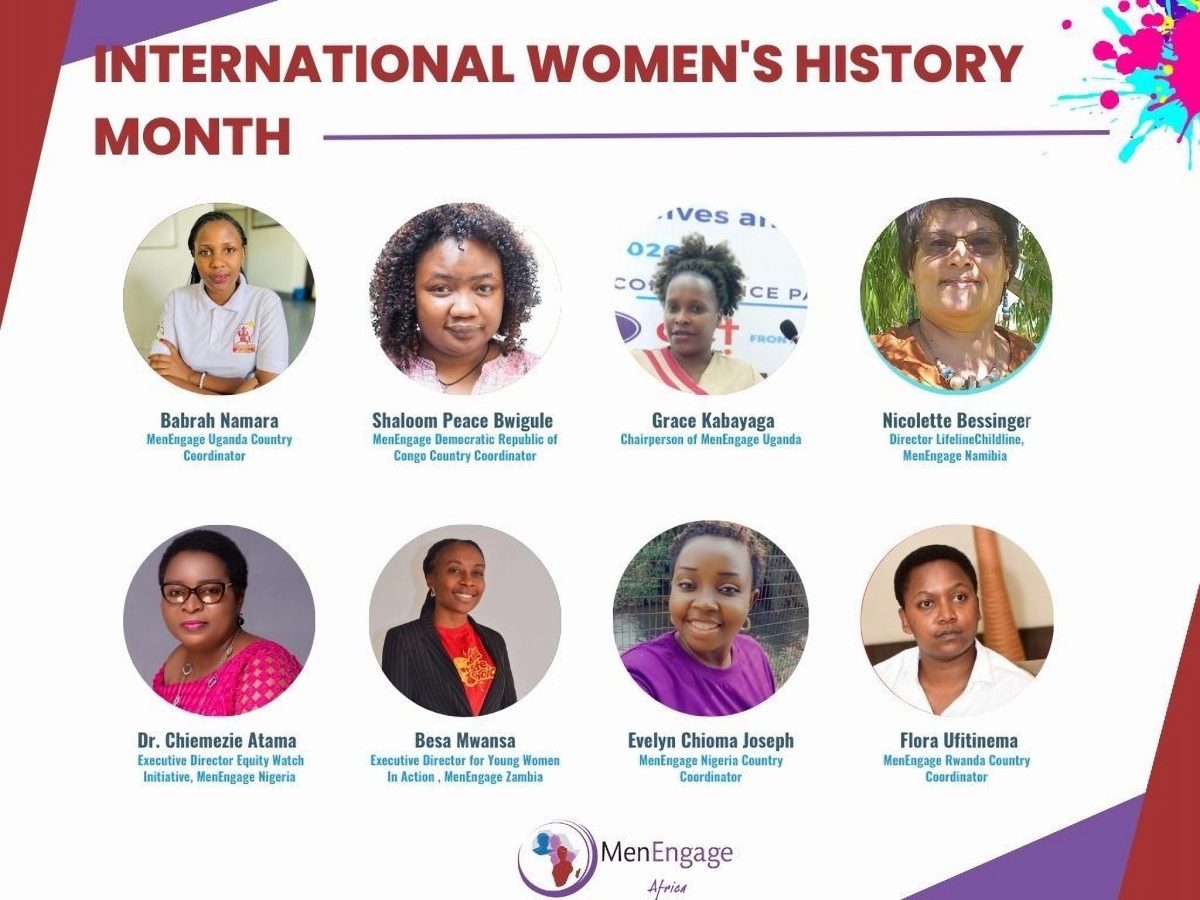In March, we commemorated International Women’s History Month. MenEngage Africa continues to celebrate the countless women who have fought tirelessly and courageously for equality, justice, and access to opportunities in our continent. We also reaffirm our commitment to advancing women’s and girls’ rights and opportunities around the world. In this newsletter will highlight women leaders from within the MenEngage Africa Alliance and their efforts and contributions to gender-just societies across the sub-Saharan region.
As an alliance, MenEngage Africa has gone through several changes over the years to address what has been perceived by the feminist movement as a lack of accountability. The MenEngage movement was created to bring together organisations working across different thematic areas using the strategy of male engagement. A key misconception in the early years of the movement was that programming around male engagement should be led by men. This is far from the truth, as this work to dismantle patriarchy and transform masculinities was in fact started by the women’s movement.
There have been deliberate and concerted efforts over the years to increase women’s leadership and decision-making within the MEA movement. Strides have been made to ensure women are at the forefront of decision-making within MEA structures. For a start, 50% of MEA country secretariats are now women-led organisations, 54% of country network chairs are women, and 50% of country programme coordinators are also women. At the regional level, the picture is slightly better, with 66% of the regional steering committee being women and being chaired by two women at the youth and regional steering committees.
But questions remain: Has the movement made a substantial impact on dismantling patriarchy within the alliance itself and in the communities where we work? Is equal representation sufficient? What has the movement done to increase representation among nonbinary members? Are the women leaders empowered to confidently hold their male counterparts accountable about their role in the fight for gender equality? Have we changed the discourses and practises of what engaging men and boys for gender equality means? Most significantly, can we absolutely show that women’s lives have transformed for the better?


